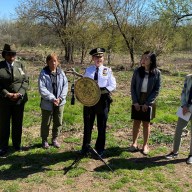I am the communications director and editor for The Forum, the newsletter of my organization, the Catholic-Jewish Relations Council of Northeast Queens. I am also an amateur historian emphasizing on the American Revolution. In your Oct. 21-27 issue, you published an article by Joan Brown Wettingfeld which examined the role Thomas Paine and his pamphlet “Common Sense” played in the American Revolution (“Writer Thomas Paine helped foster American independence”). I believe readers should be more aware of the role Paine played in the Revolution.
“Common Sense” was written anonymously. At the time, the idea of independence from Britain was considered treasonous and Paine feared for his life. Eventually, it was revealed that he was the author, along with the assistance of Benjamin Rush, a physician who dabbled in politics. Paine claimed that what influenced his decision to write “Common Sense” was that in speaking to both British and American citizens he found a general consensus that eventually America would become independent. As an individual who had a distaste for monarchy, he believed the time had arrived to push the colonists to make the break.
He influenced many colonists who had been on the fence into supporting the revolution. Paine’s writing was so influential that a majority of colonists chose to take up arms. After the outbreak of hostilities, Paine enlisted in the Continental Army, during which service he wrote another pamphlet, “The American Crisis,” which begins, “These are the times that try men’s souls.”
After the war, Paine tried his hand at being an inventor and traveled to Britain to seek financing. Having no luck there, he went to France when the French Revolution broke out, where he wrote “The Rights of Man” in 1791-92, in which he opposed all forms of heredity government, became a French citizen and was elected to the National Convention.
Paine wrote another pamphlet, “The Age of Reason” (1794-95), in which he excoriated Christianity and challenged the Bible as not being the word of God. As a deist, Paine reflected the religious position of many of the Founding Fathers.
His anti-Christian stance did not sit well with Catholic France, so he returned to America in 1802. He was welcomed by Thomas Jefferson, who held him in high regard, but his radical views on government and religion left him an outcast. He returned to his farm in New Rochelle, N.Y., which was a gift from the new government, having been confiscated from a British loyalist who fled America. He lived out his remaining years an alcoholic in poor health, and upon his death in 1809 was buried in a corner of the farm.
Edward L. Fox
Bayside





























